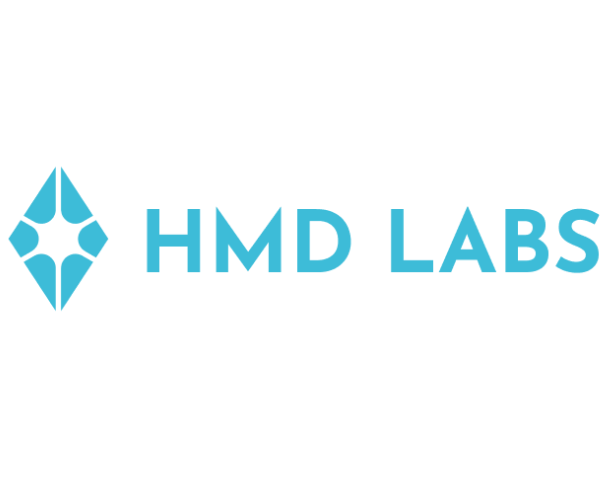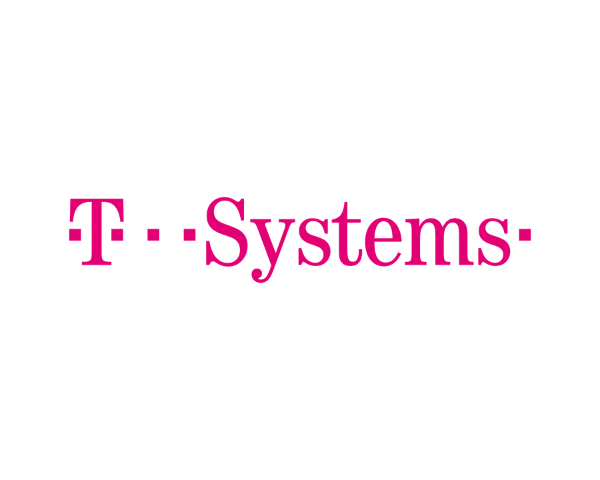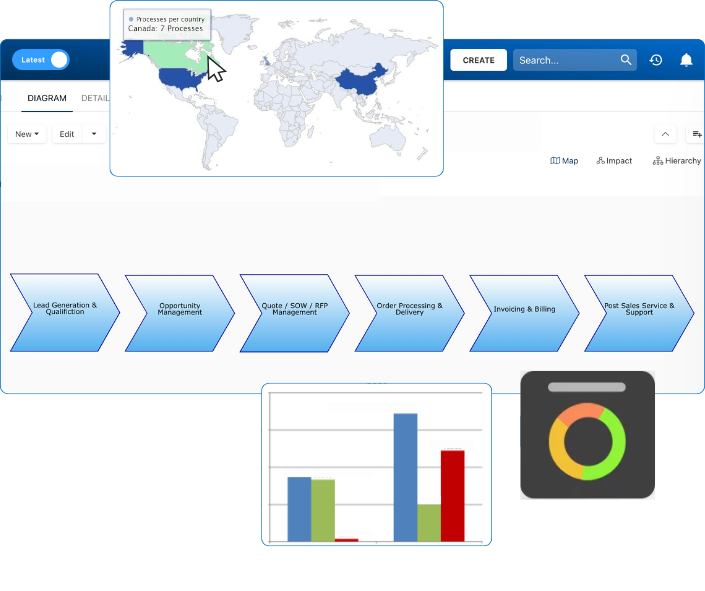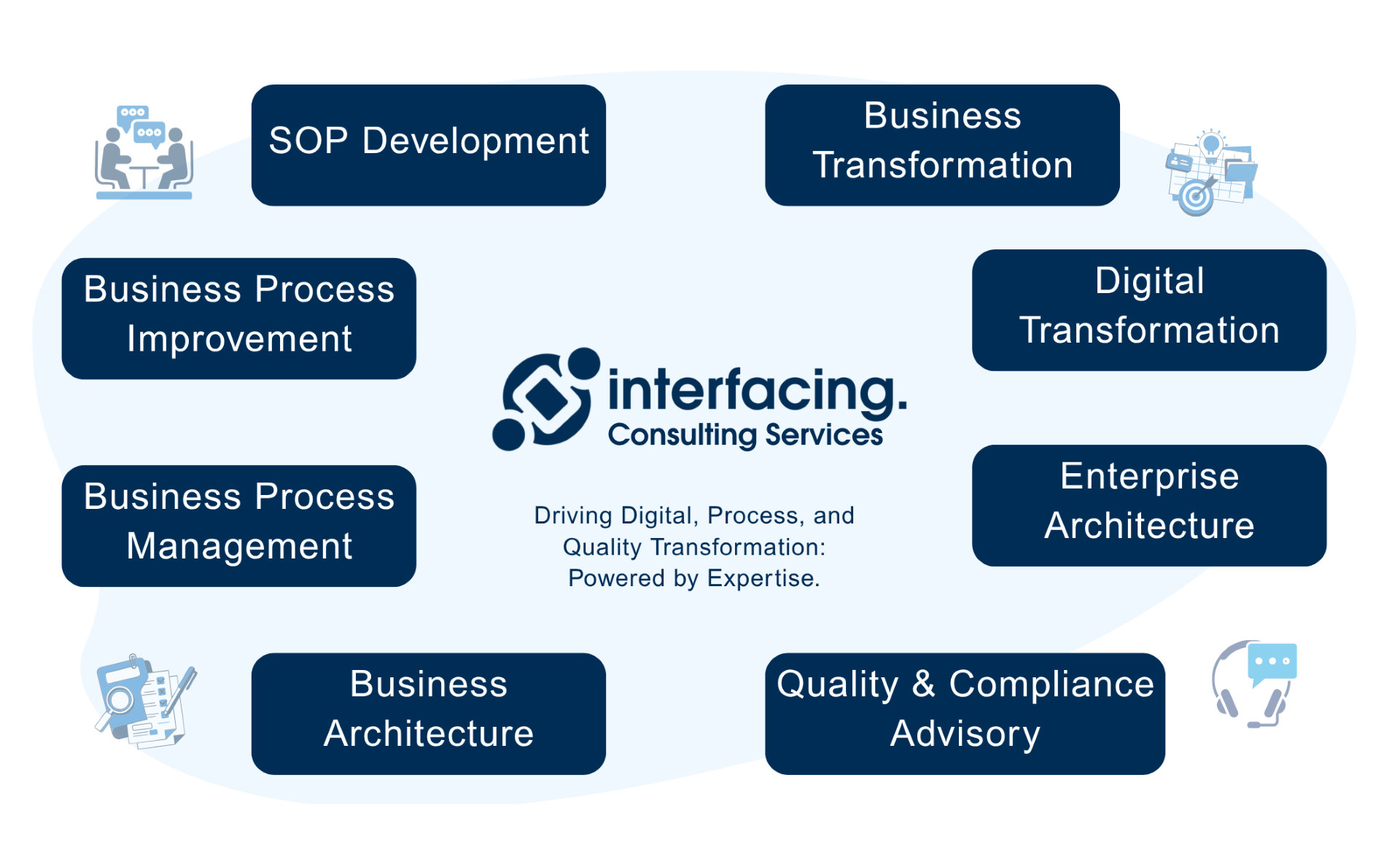- Business Process Management (BPM)Document Management System (DMS)Electronic Quality Management System (QMS)Risk, Governance & Compliance (GRC)Low Code Rapid Application Development (LC)Business Continuity Management (BCM)Enterprise Architecture (EA)Business Process Management (BPM)Document Management System (DMS)
- Document Control Overview
- AI Content Creation & Improvement
- Policy & Procedure Management (SOP)
- AI Content Mining Parser
- Collaboration & Governance
- Data Migration & Integration
- Interfacing Offline App
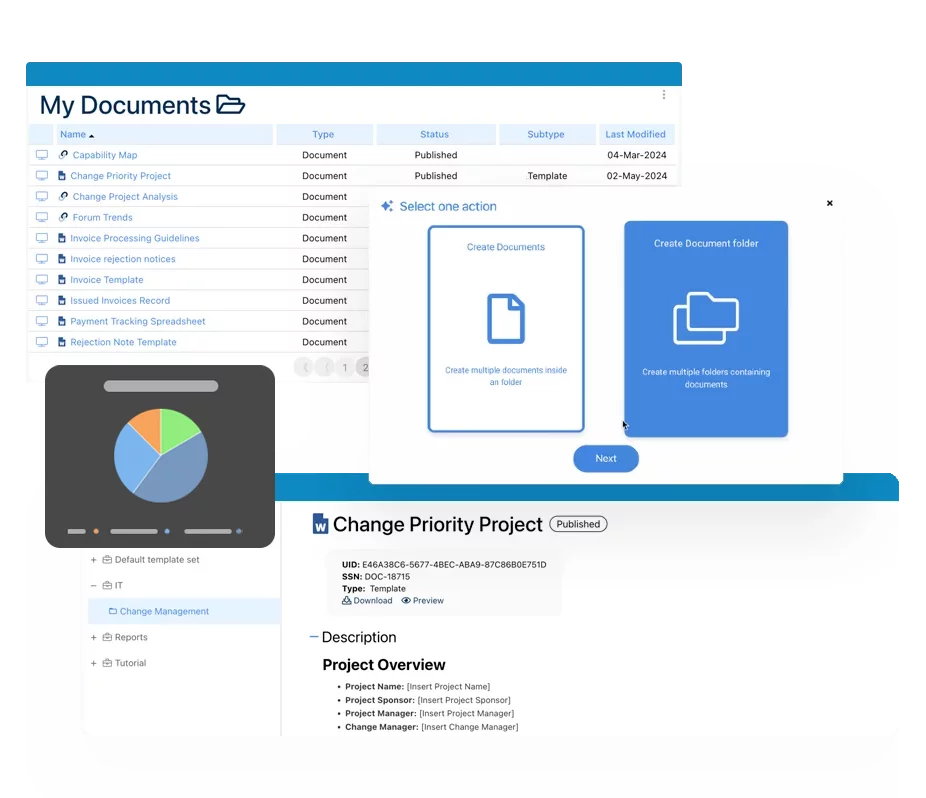 Electronic Quality Management System (QMS)
Electronic Quality Management System (QMS)- Quality Management System Overview
- Document Control & Records Management
- Audit & Accreditation Management
- Corrective & Preventative Action
- Quality Event (Non-conformity / Complaint/ Compliance)
- Risk Management
- Incident Management
- Environmental Health & Safety
- Product & Supplier Management (SCAR)
- Training Management
- Control Management
- Action Items Management
- Management Review
- FMEA
- Pharmacovigilance
- Data Migration & Integration
 Risk, Governance & Compliance (GRC)
Risk, Governance & Compliance (GRC)- Risk, Governance & Compliance Overview
- Risk & Control Management
- Regulatory Compliance
- Collaboration & Governance
- Data Migration & Integration
- Interfacing Offline App
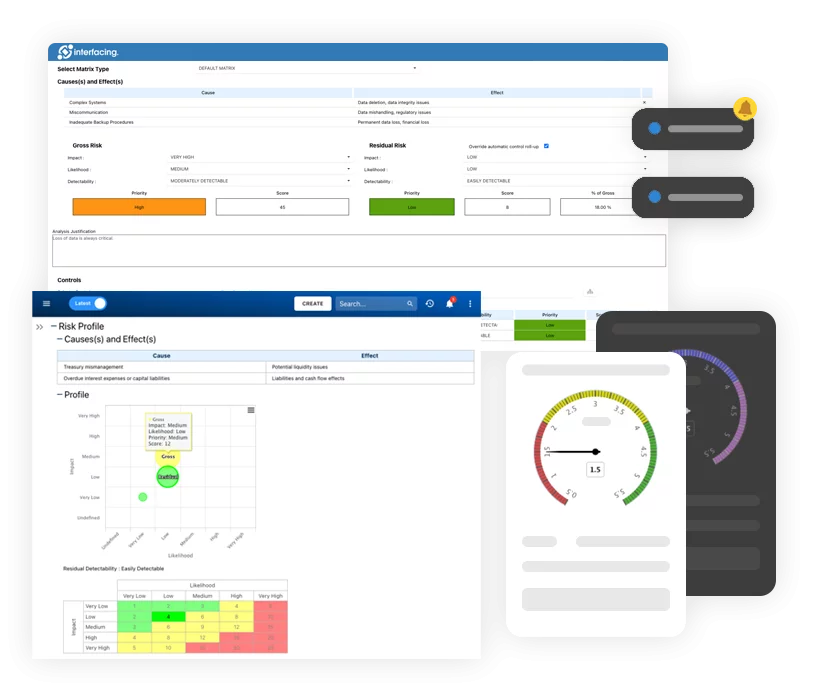 Low Code Rapid Application Development (LC)
Low Code Rapid Application Development (LC)- Low Code Automation Platform Overview
- Electronic Web Form Design (eFORMS)
- Database Table Entity Designer
- System Integration Designer
- Design & Manage Tasks
- Design & Manage BPMS Apps
- Custom Rules/Guards/Actions
- Electronic Services
- User Homepage
- BAM (Business Activity Monitoring)
- Custom Dashboard Design
- Data Migration & Integration
 Business Continuity Management (BCM)
Business Continuity Management (BCM)- Business Continuity Management Overview
- Business Impact Analysis
- Disaster Recovery Simulation
- Action Item Management
- Mass Notification Management
- Asset Management
- Interfacing Offline App
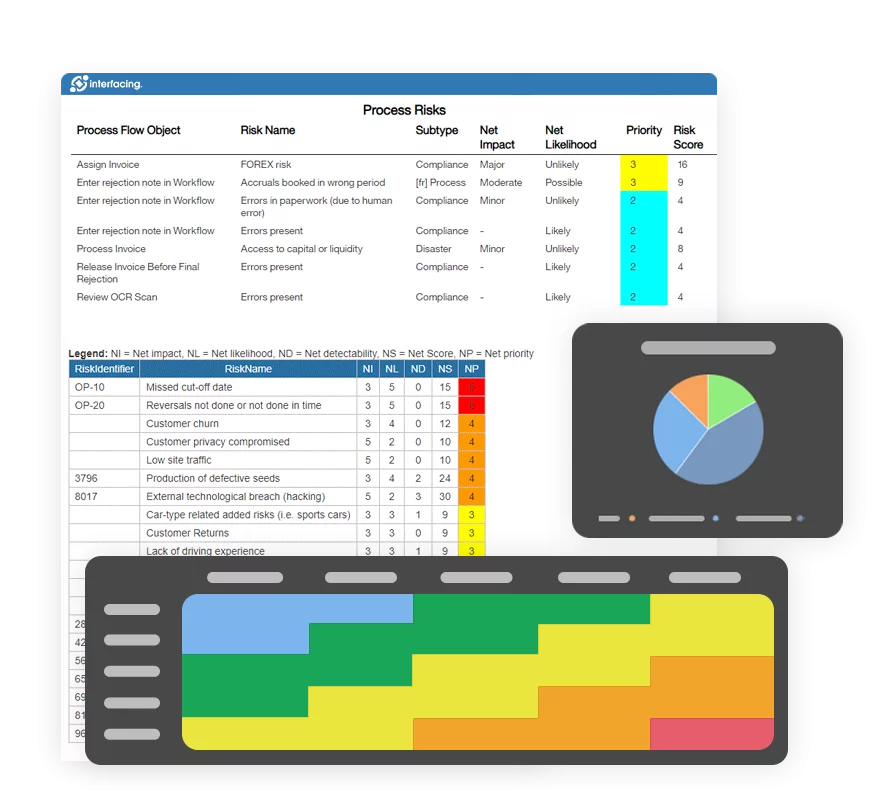 Enterprise Architecture (EA)
Enterprise Architecture (EA) - IndustriesRegulatory ComplianceUse CasesLearning CenterFramework & PracticesIndustries
- Healthcare
- Medical Device Technology
- Life Science, Pharmaceutical
- Aerospace & Defense
- Airlines and Aviation
- Media & Telecommunications
- Government and Military
- Technology
- Energy
- Logistics & Port Operations
- Banking & Capital Markets
- Retail & Consumer
- Consulting
- Education
- Engineering & Construction
- Manufacturing
- Financial Services
- Insurance
- Chemicals
Regulatory Compliance- Regulatory Compliance
- ISO
- ISO 9001 (guide)
- ISO 9001:2026 (preparation)
- ISO 17025
- ISO 27000
- ISO 27001
- ISO27002
- ISO 42001
- EU AI Act
- SOC 2 Type 1 & 2
- Sarbanes Oxley
- GxP
- GRC
- Basel
- Digital Signature
- GDPR
- IFRS
- NIST SP 800-53
 Use Cases
Use Cases- Quality Management System (QMS)
- Digital Transformation
- Continuous Improvement
- Governance, Risk & Compliance
- Knowledge Management
- System Deployment (ERP, CRM…)
 Learning CenterFramework & Practices
Learning CenterFramework & Practices - AboutCustomer SuccessPartners



EPC Use Case
Please Select contact form.
There is always a good solution for any challenge

Why adopt Enterprise Process Center®?
With each EPC use case find out how is it possible to cope with different challenges, because every organization today is facing with a magnitude of ever evolving challenges and must increase agility in order to remain abreast of the competition. Addressing these challenges requires going digital, embracing a continuous improvement culture, retain and share knowledge and remaining compliant with effective enterprise risk management, for which adoption of management solutions like the Enterprise Process Center® is cardinal.

Quality Management System (QMS & EQMS)

Digital Transformation

Governance, Risk and Compliance

Continuous Improvement

Knowledge Management

System Deployment (ERP,CRM, SCM, BPMS)
Quality Management System (QMS & EQMS)
A quality management system (QMS) is defined as a formalized system that documents processes, procedures, and responsibilities for achieving quality policies and objectives. A QMS helps coordinate and direct an organization’s activities to meet customer and regulatory requirements and improve its effectiveness and efficiency on a continuous basis. EQMS (Electronic Quality Management System) transforms the manual process of QMS into a digital process managing content and business processes (ISO 9001:2015) to meet quality and compliance requirements across the value chain. This can be described as a QMS platform that is integrated with an IT infrastructure and data model facilitating cross-functional collaboration and communication.
EPC enables businesses to be aligned with the new paradigm of digital disruption while helping organizations to transform digitally through SMAC technologies and traditional BPM in a structured and centralized environment. The EPC brings value to digital transformation initiatives through mobile & social collaboration, alignment of internal business processes and customer journey, transparency into enterprise cloud strategies and approaches, objective performance monitoring, and data driven business process flexibility & reporting.
Digital Transformation
Re-orientation of organizations that is powered by technology towards a customer centric approach than just focus on internal business processes is the essence of digital transformation. Organizations have realized the needs for speed, agility, transparency, inclusiveness to break through the silos and view business processes across the expanse of the enterprise are capabilities that paramount in digital transformation. Organizations who want to succeed in the digital transformation journey must be prepared to leverage the integration between the SMAC (Social, Mobile, Analytics, Cloud) while keeping customer experience at the forefront.
Re-orientation of organizations that is powered by technology towards a customer centric approach than just focus on internal business processes is the essence of digital transformation. Organizations have realized the needs for speed, agility, transparency, inclusiveness to break through the silos and view business processes across the expanse of the enterprise are capabilities that paramount in digital transformation. Organizations who want to succeed in the digital transformation journey must be prepared to leverage the integration between the SMAC (Social, Mobile, Analytics, Cloud) while keeping customer experience at the forefront.
Continuous Improvement
In the fast-paced and modern digital business environment, an organization has to improve/evolve on a continuously to remain in competition instead of the traditional project-to-project approach. Business leaders realized that to improve customer experience, customer loyalty, productivity, and also to reduce product recalls/service rework and increase maturity levels to growth, establishing a continuous improvement culture is vital to success.
In the fast-paced and modern digital business environment, an organization has to improve/evolve on a continuously to remain in competition instead of the traditional project-to-project approach. Business leaders realized that to improve customer experience, customer loyalty, productivity, and also to reduce product recalls/service rework and increase maturity levels to growth, establishing a continuous improvement culture is vital to success.
Governance, Risk and Compliance
Organizations today have responsibilities, not only to customers, shareholders, employees, and partners but also towards the statutory and regulatory bodies as well. The increased spotlight on governance, enterprise risk management (ERM) and compliances in the public is requiring organizations to provide transparency into operations and control.An integrated Business operations view aligned with the ever-evolving regulatory requirement and the ability to identify, assess and mitigate such risks is expensive and difficult. An integrated Business operations view aligned with the ever-evolving regulatory requirement and the ability to identify, assess and mitigate such risks is an expensive and difficult task in the business today. This is a huge challenge that businesses face.
The EPC helps organizations improve transparency and governance while providing tools to better manage risk and reduce the cost of audit and compliance. integrated GRC modules support regulatory rule/law management, risk impact & likelihood gross & net assessment, control management, audit planning and scheduling, audit completeness and accuracy result reporting, corrective and preventive action (CAPA) scheduling and assignment. EPC’s GRC modules are fully integrated into the process and organization to ensure accountability, segregation of duties (SOD) and adoption by the business.The risk management and control repository are linked to the business process and/or task to arrive at the gross risk and residual risks. The EPC also offers out-of-box Risk & Control specific reports for detailed analysis and management. The inbuilt support exists for multiple compliance (SOX, BASEL III, IFRS, COSO etc.) frameworks. Transparency as a required key in good governance is supported by extensive audit trail and event logs which can be reported upon, version controls along with applicability of the RASCI-VS responsibility assignment for each object such as process, task, risk, control, KPI, KRI etc. support the Segregation of Duties that is a critical internal control that aids in the prevention of theft and fraud.
Knowledge Management
With baby boomers retiring and the entrance of the millennial job-hopping generation, knowledge gaps and training inefficiencies are at all-time highs. Organizations face scarcity of well-documented business processes and procedures as knowledge is fragmented, multiplied into different versions of the truth, and held and protected only in the minds of specific individuals.
The EPC’s centralized knowledge repository provides on-demand searchable quick employee access, simplified centralized management, and automated communication of change. The EPC is much more than process maps, the knowledge base includes details and accessibility to the organizational structure, assets, systems, roles, resources, documents, rules, risks, controls, objectives, key performance indicators, and IT master data & services. Moreover, the EPC’s digital standard operating procedures (SOPs) support rich text and media (videos, images, bullets, tables, formatting, URLs, application links, …) providing a more modern and quicker learning environment.
System Deployment (ERP,CRM, SCM, BPMS)
The ever-changing technology landscape, customer requirements, unrelenting financial reporting requirements, and competitive cost pressures require organizations to rapidly adjust, redesign and automate their processes through robust and reliable transaction processing capabilities. Digitizing your processes often includes the deployment or upgrade of an existing enterprise resource planning (ERP), customer relationship management (CRM), supply chain management (SCM) or BPM workflow automation system, amongst many other tools. Often system deployments cause significant unproductive or even downtime not because of the supporting tool but because of unclear requirements, costly re-configurations, challenging workflow re-works and poor employee adoption because of lack of training and change management programs.
The EPC facilitates the creation of a current and to-be requirements blue-print of the organization that both business and IT can collaborate around within a common language. The EPC’s versions compare and impact visibility offers insight into unforeseen challenges to ensure a smooth transition phase with minimal downtime & reworks. Moreover, Interfacing’s digital environment integrates directly within an external system (ERP, CRM, SCM) to ease the process of re-training and EPC’s structured collaboration forum (improvement request-to-delivery) engages employees; promoting a culture of change and increasing the speed of adoption.
Why Choose Interfacing?
With over two decades of AI, Quality, Process, and Compliance software expertise, Interfacing continues to be a leader in the industry. To-date, it has served over 500+ world-class enterprises and management consulting firms from all industries and sectors. We continue to provide digital, cloud & AI solutions that enable organizations to enhance, control and streamline their processes while easing the burden of regulatory compliance and quality management programs.
To explore further or discuss how Interfacing can assist your organization, please complete the form below.

Documentation: Driving Transformation, Governance and Control
• Gain real-time, comprehensive insights into your operations.
• Improve governance, efficiency, and compliance.
• Ensure seamless alignment with regulatory standards.

eQMS: Automating Quality & Compliance Workflows & Reporting
• Simplify quality management with automated workflows and monitoring.
• Streamline CAPA, supplier audits, training and related workflows.
• Turn documentation into actionable insights for Quality 4.0

Low-Code Rapid Application Development: Accelerating Digital Transformation
• Build custom, scalable applications swiftly
• Reducing development time and cost
• Adapt faster and stay agile in the face of
evolving customer and business needs.
AI to Transform your Business!
The AI-powered tools are designed to streamline operations, enhance compliance, and drive sustainable growth. Check out how AI can:
• Respond to employee inquiries
• Transform videos into processes
• Assess regulatory impact & process improvements
• Generate forms, processes, risks, regulations, KPIs & more
• Parse regulatory standards into requirements

Request Free Demo
Document, analyze, improve, digitize and monitor your business processes, risks, regulatory requirements and performance indicators within Interfacing’s Digital Twin integrated management system the Enterprise Process Center®!
Trusted by Customers Worldwide!
More than 400+ world-class enterprises and management consulting firms






















